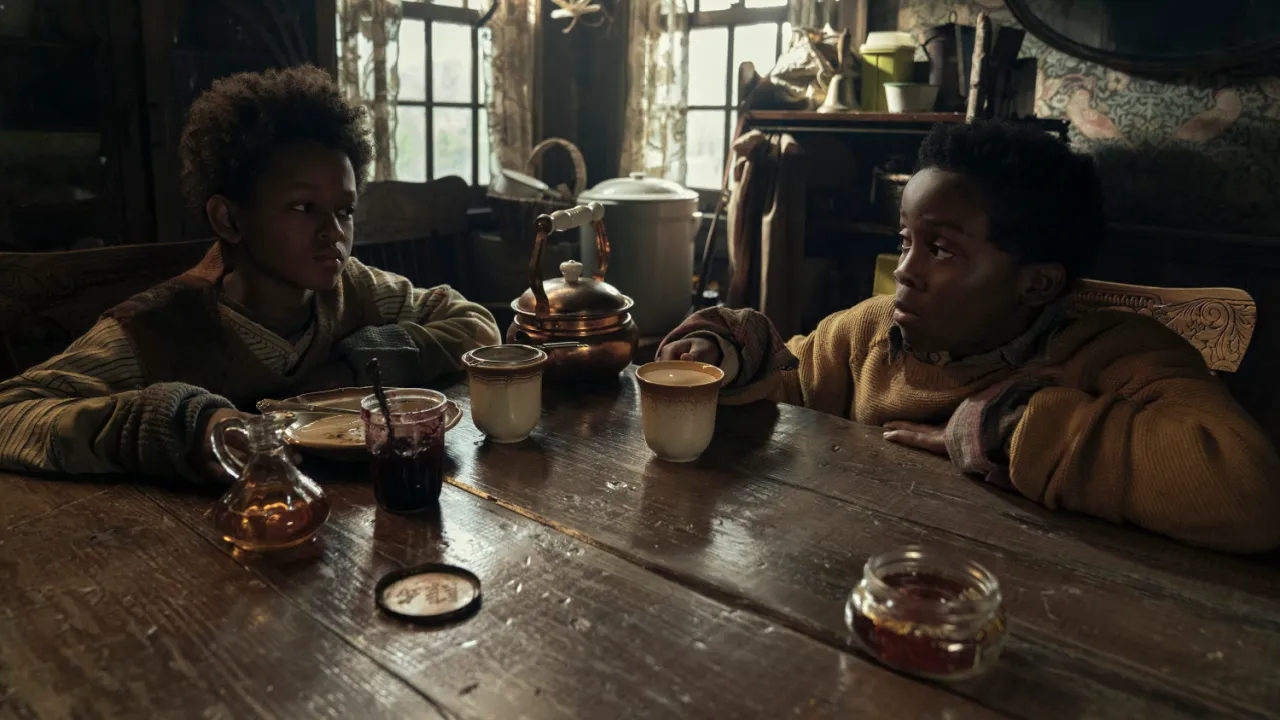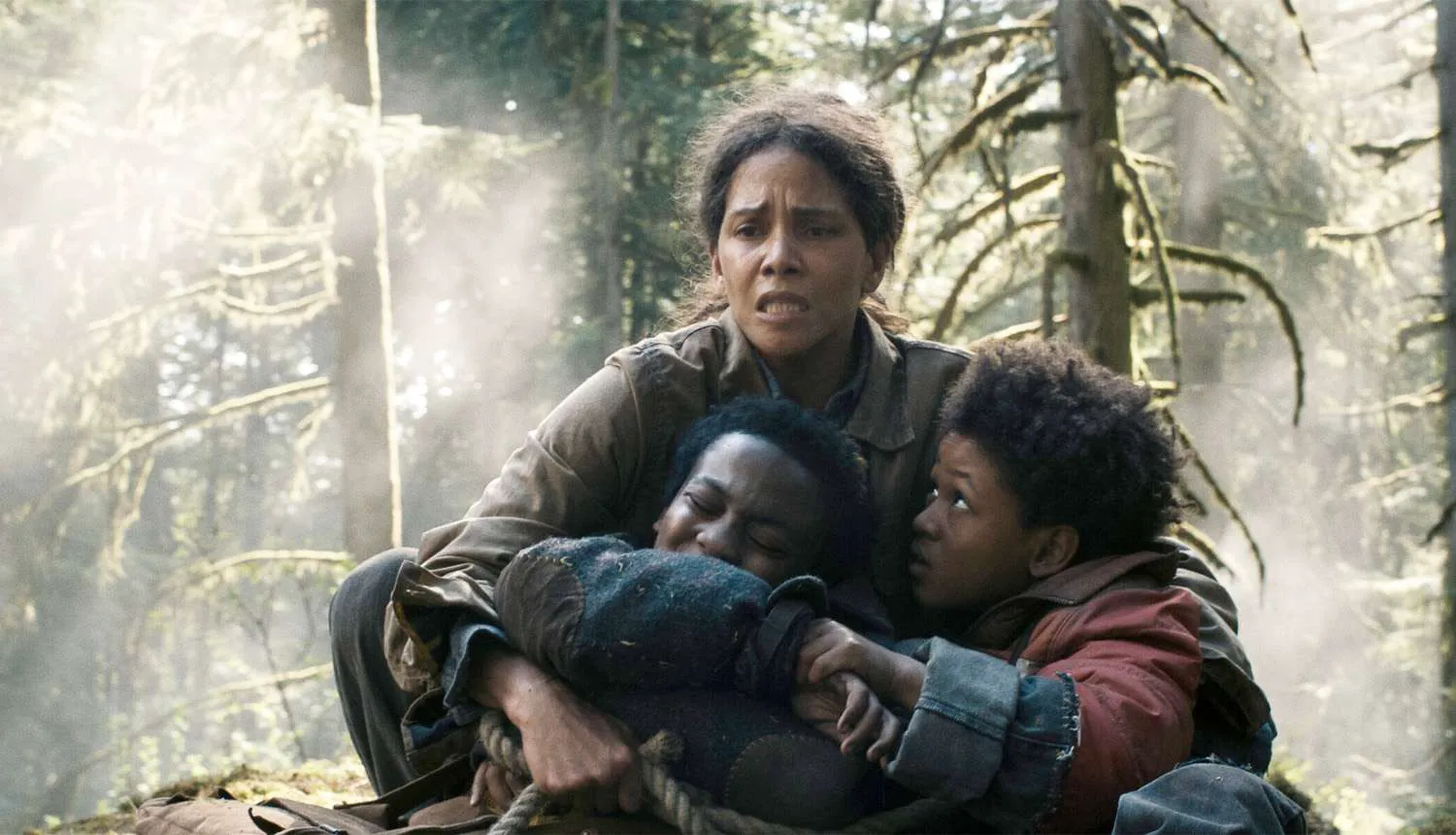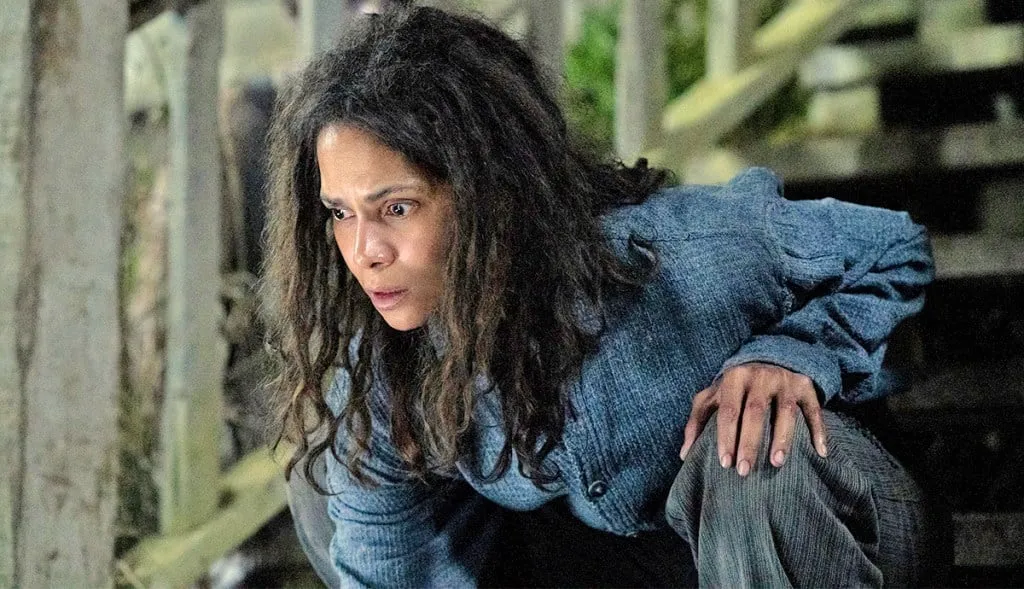Deep within the dense, overgrown woods stands a secluded cabin. This is home to Mom (Halle Berry) and her two sons, Nolan (Percy Daggs IV) and Samuel (Anthony B. Jenkins). They sought refuge in this isolated dwelling after a supernatural force, simply known as “Evil,” decimated nearly the entire global population. Their survival hinges on adhering to a strict set of rituals designed to ward off the malevolent entity. One such ritual involves always being tethered to the house with a rope when venturing outside, lest the monsters snatch you away and claim your soul. Another crucial rule is to ignore any strangers who may appear within the confines of their home, as Evil is known to disguise itself as ordinary people. The catch? Only Mom can perceive the dead and the emissaries of Evil. As Nolan and Samuel grow older, they begin to question the reality of these monstrous tales, wondering if they are merely fabrications of their mother’s imagination.

Percy Daggs IV as Nolan in “Mother Land”
The Director’s Shift
Director Alexandre Aja once stood as a fresh voice in French extreme cinema and Hollywood horror. His earlier works, such as the French slasher “High Tension,” “The Hills Have Eyes,” and “Mirrors,” were characterized by their brutality, coldness, and a distinctly European grand guignol intensity that was largely absent from contemporary American cinema. However, Aja quickly adapted to the studio system, streamlining his signature style. His more recent projects have increasingly resembled generic genre exercises designed for background streaming rather than fully realized auteur films. Whether it’s a family trapped in a house teeming with hungry crocodiles, a woman awakening in a cryogenic chamber with no memory of how she got there, or a mother and her children living in the woods, bound by ropes to evade evil spirits, Aja’s work has taken a turn.

Halle Berry as Mom in “Mother Land”
Intriguing Setup, Slow Burn
Initially, “Mother Land” captivates with its rich details. Beyond the unusual rope ritual, we are shown other facets of the family’s life: anyone suspected of being infected is confined to the cellar. During times of famine, the family resorts to eating tree bark and even contemplates killing their beloved dog – anything to avoid venturing into the dangerous city and risking their lives. In essence, many of the film’s most compelling moments resemble scenes from a survival reality show, infused with the aesthetics of paranormal religious horror that has enveloped the world.

Halle Berry as Mom in “Mother Land”
The Central Flaw
The film’s problems arise from the script’s hesitant approach to its central mystery: Is Mom a caring protector who genuinely sees the emissaries of Evil, or is she a delusional woman with a tragic past, holding her own children hostage? The answer is revealed so slowly that even a casual viewer is likely to have figured it out within the first half-hour. The setup of “Mother Land” is reminiscent of the opening of typical M. Night Shyamalan thrillers about faith, such as “Signs” and “Glass,” where the characters, and by extension the audience, are forced to question what seems to be objective reality and to consider, even for a moment, that the world may not be as simple as it appears. However, the director of “The Sixth Sense” masterfully engages the audience with endless plot twists. Aja’s film, on the other hand, attempts to maintain intrigue solely through dialogue, with the sons lazily arguing every 10 minutes about whether Mom has fabricated “Evil.”
Aja’s primary failure on set is the film’s complete lack of emotion. Even in his later period, the director found ways to entertain: “Piranha 3D” and “Crawl” featured colorful scenes of animal violence against humans, “Horns” shocked with its absurd plot, and “Oxygen” frightened with its claustrophobic cinematography and sense of uncertainty. “Mother Land” boasts none of these qualities. It emerges as a workmanlike film with a basic conflict: a story about children who begin to doubt the authority of adults and independently explore the world. Aja abandons clever camera tricks, ultra-violence, and gritty aesthetics. Instead of his former shock value, the director presents a polished commercial picture, a few jump scares, and tired reflections on adolescent rebellion.